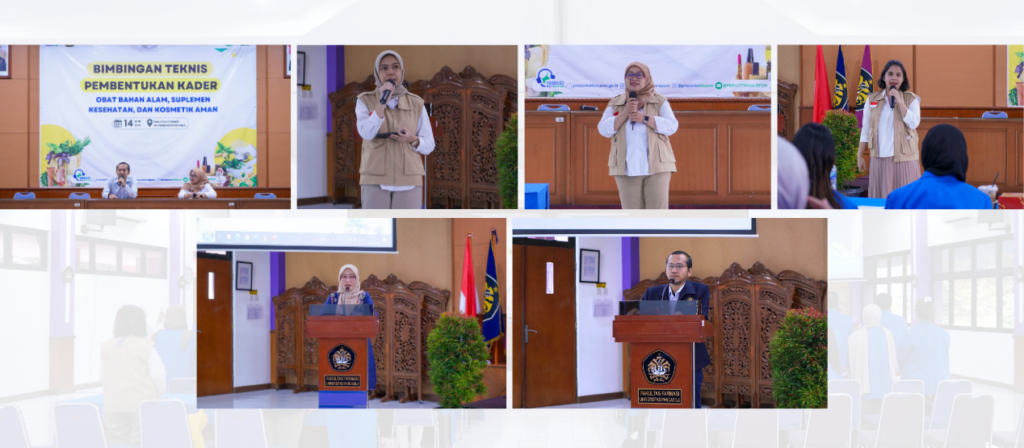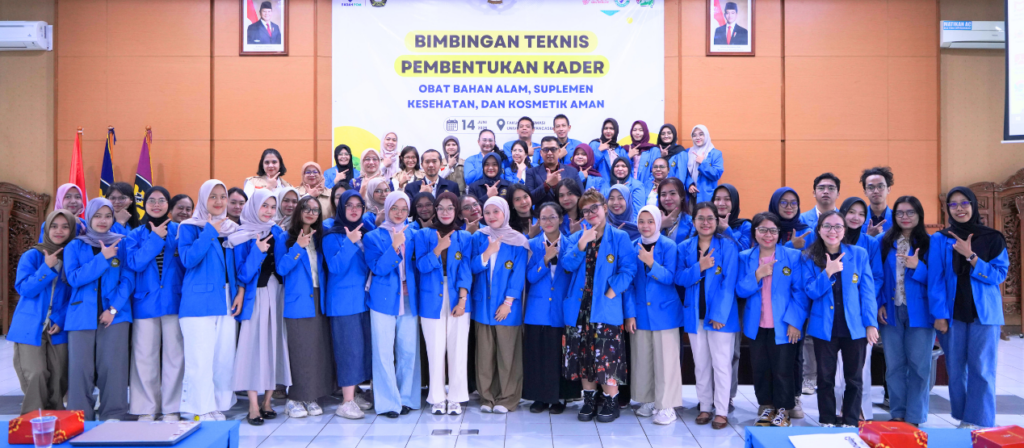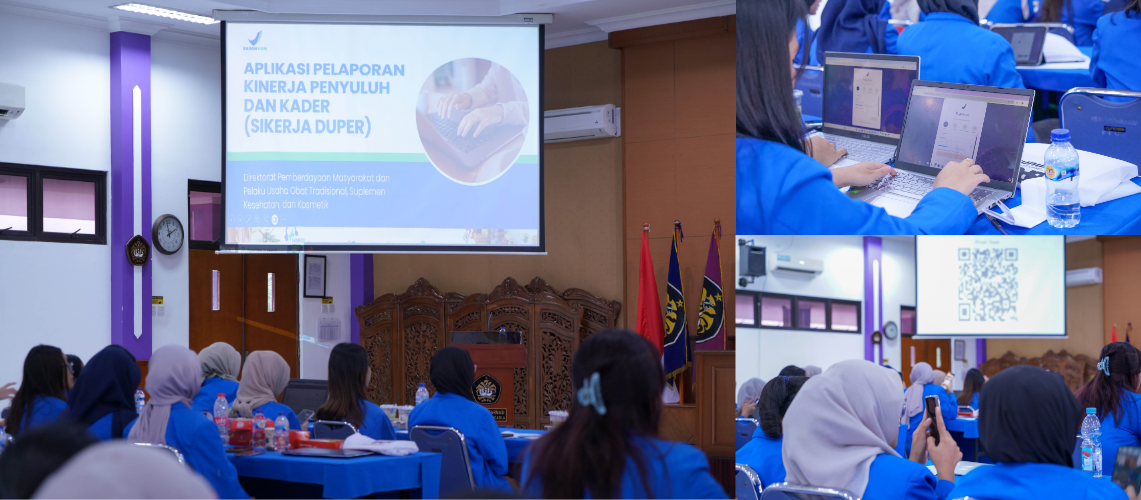Saturday (14/6), the Faculty of Pharmacy, Pancasila University (FFUP) together with the Food and Drug Supervisory Agency (BPOM) launched an innovative program entitled “BPOM Goes to Community”. This initiative aims to increase public literacy regarding the safety of natural medicines, health supplements, and cosmetics through the formation of competent health cadres.
This program involves 48 FFUP students from D3, S1, Pharmacists to S2 levels who are given intensive training to become agents of change in society. With the provision of comprehensive educational materials, students are prepared to educate the public on how to wisely choose and use health products safely.
Dr. apt. Adri Prasetiyo, M.Farm, Head of the Master of Pharmacy Study Program, led this initiative with a vision of building a young generation that cares and is active in responding to the challenges of health product safety in Indonesia. “Students not only study, but also become the spearhead in educating the public,” he said.

During the activity, participants received materials that included an introduction to the function of BPOM, guidelines for the safe use of natural medicines, the right way to consume supplements, and choosing cosmetics according to standards. In addition, they were introduced to two important applications, BPOM Mobile and SIKERJA DUPER, as digital tools for reporting and monitoring cadre performance.
One of the important moments in this program is the socialization of the cadre’s duties as Communication, Information, and Education (KIE) agents that focus on three main pillars: natural medicines, health supplements, and safe cosmetics. Cadres are expected to be able to convey information with an effective approach and directly touch the needs of the community.

Through “BPOM Goes to Community”, the Faculty of Pharmacy, Pancasila University and BPOM are committed to creating young cadres who not only understand the importance of health product safety, but are also able to disseminate this knowledge to increase collective awareness in the community. This initiative is a strategic step in building a safer and more responsible health culture.
